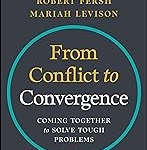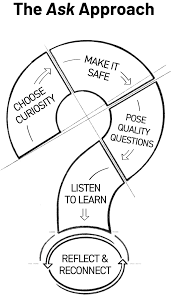
In the old days before streaming, we would be in the middle of summer rerun season when all we could watch on television were repeat episodes of our favorite shows. That’s less of a problem in today’s television universe (or so I’m told since I only watch PBS and sports).
But old guy that I am, I couldn’t help thinking about rerun season when I started planning this week’s post. The assassination attempt on Donald Trump’s life and Joe Biden’s decision to drop out of the presidential race kept taking me back to the “malady” I called being politically clinically depressed just three weeks ago.
Given how much I hated rerun season as a kid, I won’t subject you to that whole “episode” again out of principle. In fact, I would never ask you to watch an entire show that you might have seen a few weeks ago other than Midsomer Murders in either incarnation of DCI Barnaby—look it up if you have to.
 Nonetheless, I do want to revisit one of the key points I made what feels like a political lifetime ago and add some concrete meat to its intellectual bones (no implicit criticism of vegans here; it’s just the first image that came to mind).
Nonetheless, I do want to revisit one of the key points I made what feels like a political lifetime ago and add some concrete meat to its intellectual bones (no implicit criticism of vegans here; it’s just the first image that came to mind).
If (heaven forbid) you committed what I wrote the way I used Jon Stewart in that earlier post to memory, you can skip the next section.
Jon Stewart’s Challenge
Shortly after he returned to the Daily Show last February, some friends (including my therapist) told me about Jon Stewart’s monologue that first night.
It starts with nineteen minutes of typical John Stewart humor and seemed to be setting the stage for what promised to be a humorless campaign.
Then, in the last two minutes, he got dead serious and prepared us for what lies ahead of us.
You should click the link and watch the whole thing, but if you don’t want to take the time, here is a slightly abridged text of those last two minutes.
You’re gonna get inundated with robocalls, and push polls, and real polls, and people are gonna tell you to rock the vote, and be the vote, and vote the vote, and finger-bang the vote, and it’s all going to make you feel like Tuesday, November 5 is the only day that matters. And that day does matter, but man, November 6 ain’t nothing to sneeze at, or November 7. If your guy loses bad things might happen, but the country is not over, and if your guy wins, the country is in no way saved.
The work of making this world resemble one that you would prefer to live in is a lunch pail f***ing job, day in and day out, where thousands of committed, anonymous, smart and dedicated people bang on closed doors and pick up those that are fallen and grind away on issues until they get a positive result, and even then have to stay on to make sure that result holds.
I’m not sure I could define what he means by “lunch pail f***ing job” with the kind of clarity my high school English teachers would have wanted.
But it is what I knew we had to do long before he added that phrase to my working vocabulary.
Until November 5
There is one key point that is implicit in his monologue that I want to make explicit here.
Whoever wins, we are all going to be sharing this country on November 6 and beyond.
So, the question I want to start with is how we can take part in this heated, divided, and humorless campaign without driving the wedges that divide us even deeper?
By all means, support who you want.
But do so in ways that help us build something better after the polls close.
Above all else, that means that people like me—and I hope you—will avoid demonizing the other side and, more generally, spend our time focusing on what we are for rather than who we are against, knowing full well that the campaigns themselves will not be able to do so.
In other words, we have an opportunity—and perhaps an obligation—to begin doing things differently and better in ways that set the stage for the next phase of Stewart’s “lunch pail f***king job”
Let me be clear here.
I feel very strongly that the candidate I prefer could do great things, while voting for the other one would—at best–be a dangerous risk.
If you know me, you won’t have any trouble putting names to my vague descriptions. If you don’t, you’ll realize that I could have written that sentence if I supported either candidate.
But here is the key point. Even though I am extremely committed to one side in this campaign, I have spent the last fifty years figuring out how to disagree with people while also seeking ways for us to work together. Maybe not today. But sometime soon.
What I do probably won’t work for you, but I’m sure you can find your own pathway toward having difficult conversations that help you and the people you disagree with both make some progress toward moving forward together.
Here are two examples to ponder.
First, on Saturday, my wife and I went to our local farmer’s market, and I wore my “Make Empathy Great Again” t-shirt. I mostly stood around while Gretchen bought stuff (I’m the designated bag carrier), which meant that a few people stopped by to compliment my clothing tastes and talk for a few seconds.
In each case, I found a way to suggest that the lack of empathy goes both ways. No one would argue that Donald Trump or his most ardent supporters are likely to win the Nobel Prize for Empathy—even if there were such a thing. But, if we’re honest, folks on the left have not done a very good job of figuring out why roughly half of the likely voters are prepared to cast their ballot for him.
Empathy doesn’t solve everything. On its own, it may not solve anything.
Still, understanding why people feel the way they do is a necessary—if not sufficient—requirement for successful cooperative problem solving. And that’s just the tip of the clichéd iceberg. Generally speaking, we peacebuilders should heed our own message as we make our way through the fall. Be eager to talk about the election, but at the same time, we should live up to the values that we help people in conflict around the world adopt.
Second, I’ve been asked to help facilitate a day-long workshop for Rotary members from my district in northern and central VIrginia about how best to have difficult conversations in all venues, not just political life. Since we are doing it in September, the election is bound to come up.
To be honest, I don’t know how all the members of my club will vote, let alone my colleagues from the rest of the district which includes a mix of liberal leaning DC suburbs and small towns that are heavily Republican.

We’re still putting the program together. It will consist mostly of exercises that participants will do and learn from together along three main lines:
Don’t run away from tough discussions. Don’t avoid them out of fear of offending the other person or anything else. Rotarians share powerful common goals around what current Rotary International President Stephanie Urchick calls lasting change. So, my colleagues and I will help our fellow Rotarians see that we need to lean into controversy without fearing that we will hurt someone’s feelings. Instead, Rotarians can take the lead in modeling how to talk with anyone and seek to build constructive relationships and friendships when we disagree as well as when we agree. If we learn how to do that, life within Rotary will be a lot more comfortable. More importantly, Rotary can model a new kind of leadership that is consistent both with its core principles and the broader pathway to Urchick’s lasting social change.
Know what you want to accomplish. As I’ve said in earlier posts, I rarely try to convince someone that I’m right, especially if it’s someone I’m just getting to know as will be the case with most of the people who come to our workshop in September. Rather, I start by trying to understand why they think the way that they do and share my own perspectives on those issues in the hope that we both start thinking creatively. Whatever the setting, I’ve learned that people have to convince themselves that it is time to change one or more of their core beliefs. That’s when people are most likely to change because they actually decide to change on their own accord. In my case, that includes joining Rotary itself which was not something I ever would have imagined doing a decade ago. However, a series of deep interactions with friends who were already members and with friends who were highly critical of the organization both turned out to be dialogues that were so intense that I left them with more questions than answers and ultimately overcame my qualms to the point that it is now a central part of my life.
Promote dialogue rather than debate. Finally, we’ll ask our friends to deal with their fellow Rotarians and their fellow citizens in general through dialogues rather than debate. As I also said in the earlier post, I’m a huge fan of the late pollster and philosopher, Daniel Yankelovich’s notion of engaging in dialogues that are so intense that they leave neither party unchanged. Since I wrote those lines, I read Jeff Wetzler’s Ask Approach in which he presents a set of tools that give us guideposts for having the kinds of tough conversations the Rotarians want to have. Indeed, we have decided to use this key graphic from his web site and book to frame our workshop. We will actually be using different exercises that day, but just spend a few minutes thinking about how this campaign (and everything else that is divisive and stressful in our lives) would be better if we started by asking his four questions?
And not just the people we disagree with. But also asking them of ourselves.
Our Post-Election Challenge
Each time I watch the Stewart video, I find myself sharpening our plans for November 6, 7, and beyond.
The results of the election will determine the basic shape of American politics for quite some time, perhaps more than any election in my life time.
But as I sat and thought about the likely outcomes that range from a Trump victory with Republican control of both Houses of Congress on one end of the spectrum and with Harris and the Democrats scoring a similar victory at the other, I realized that I would still have to do the same lunch pail f***ing job.
The specific things I end up doing in the short term will almost certainly be influenced by the results, but my longer term priorities around which we are organizing Peacebuilding Starts at Home and that Patricia Shafer and I are focusing on in Peace is a Verb remain the same. They all also involve asking Wetzler-like questions and doing so on steroids.
Address all the issues. It’s not just about polarization and division—if that isn’t enough. We have to take on the concrete issues give rise to the divisions in the first place—race, economic inequality, climate change, gender, and more.
Change mindsets one person at a time. We can’t “just” tackle them on an issue-by-issue basis. We will also have to address what we social scientists call the underlying social norms as the first step in producing the paradigm shift that has been at the heart of my work since I was an undergraduate student/activist. Since then, I’ve had the fact that personal paradigms or mindsets get changed one person at a time through the kinds of dialogues that I hope my fellow Rotarians come to enjoy as much as I do.
Build a movement of people who get those first two points. When I was active in the Beyond War movement in the 1980s, we actually made some progress on both of those fronts. Unfortunately, our success did not survive the end of the Cold War. So, a third of a century later, I find myself again feeling the need to build a movement that crosses issue-based and ideological silos. I’m assuming that it will be quite different from the movements I’ve been part of in the past and that most people will actually only focus on one or two issues. But, it’s no surprise that I keep coming back to the title I’ve given my collection of blog post—someone(s) will have to connect the dots.

Open doors to the room where it happens. On Tuesday, I’m going to the launch of Rob Fersh and Mariah Levinsohn’s new book, From Conflict to Convergence. It focuses on the work of the Convergence Center for Policy Resolution which Rob founded and Mariah now leads (with Rob as a semi-retired senior advisor). I first met Rob shortly after the then amazingly contentious 2000 presidential election (we’ve learned a bit about that subject since then) when he led a project to build a United States Consensus Council that I helped out on. We almost pulled that off—a story for next week’s blog post. Rob then founded Convergence which has been surprisingly effective working behind the scenes to change the way some policy makers approach their work. I’ll write about their work next week (after I finish the book) but think we need to even farther than they do. These days, I’m enamored with the hit song from Hamilton, The Room Where it Happens, which is actually about one of the most momentous decisions made in the first years after the Constitution was ratified. But I think of it as a loose metaphor. We probably don’t have to “knock down” its walls and rebuild the room from scratch as a Soviet reformer friend once described Gorbachev’s package of reforms in the 1980s. But paradigm shifts are sweeping changes that will require redefining the ways people get “invited” into those rooms, which, by the way, is what Aaron Burr was so angry about at that point in the play, and we all know how that turned out….
Game changing work takes time. Finally, it’s important to realize something that my twenty-something self had a hard time seeing and my seventy-something self has a hard time accepting. There is no quick fix as much as I would like for there to be one. We are in for a long, hard slog or whatever term you want to use to replace Stewart’s phrase in polite company. Paradigm shifts do happen. But they don’t happen overnight. They happen when lots of small changes along the lines I’ve just mentioned accumulate. We start by making small “dents” in the status quo and build on them until—if we are lucky—we hit an inflection point and the rate of change takes off like an exponential curve.
My friends along with plenty of people I don’t know (yet), of course, have already begun this work and will continue doing so between now and November 5. I suspect, however, that few Americans will be paying attention to anything political other than the election until then.
Next Week: From Conflict to Convergence
The views and opinions expressed in this article are those of the author and do not necessarily reflect the official policy or position of the Alliance for Peacebuilding or its members.

